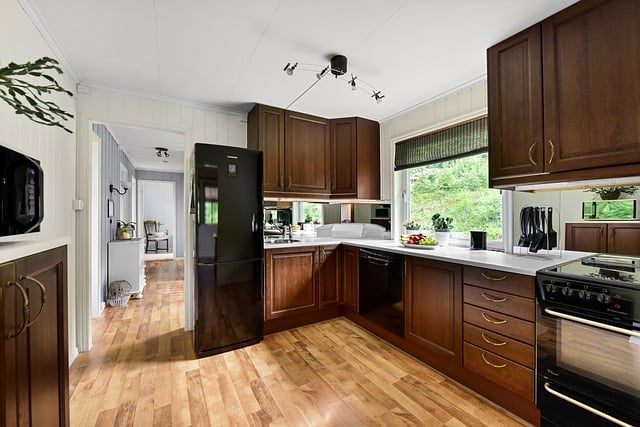When planning an eco-friendly kitchen makeover, prioritize sustainable materials to minimize environmental impact. Choose reclaimed or upcycled wood from certified forests for cabinetry, and opt for bamboo, recycled glass, or stone by-products for countertops to avoid harmful chemicals. Incorporate energy-efficient appliances and consider local, organic produce and retailers for a comprehensive green kitchen renovation that blends style with sustainability.
Looking to update your kitchen with an ethical and eco-conscious touch? Discover the ultimate guide to creating a beautiful, functional, and planet-friendly space. From choosing sustainable materials like reclaimed cabinetry and recycled countertops to incorporating smart technology for energy efficiency, we explore innovative ways to revolutionize your kitchen without compromising on style. Learn how to source local products, reduce VOCs, upcycle old fixtures, and transform waste into new features. Embrace a greener kitchen remodel with our expert tips and create a symphony of sustainability.
- Choosing Sustainable Materials for Your Kitchen
- – Exploring eco-friendly options for cabinetry, countertops, and flooring
- – Benefits of recycled and reclaimed materials
- – Tips for sourcing local and sustainable products
Choosing Sustainable Materials for Your Kitchen
When considering an eco-friendly kitchen makeover, selecting sustainable materials is a powerful way to reduce your environmental impact. Opting for green alternatives in cabinetry, countertops, and flooring can make a significant difference. Look for brands that specialize in recycled or reclaimed materials, ensuring your new kitchen features are not only stylish but also kind to the planet. For instance, choose sustainable cabinetry made from certified forests or upcycled wood, which helps support responsible forestry practices and gives new life to waste materials.
Eco-conscious countertops offer an array of options, including recycled glass, bamboo, or stone. These materials are durable, low-maintenance, and free from harmful chemicals often found in traditional countertops. Additionally, consider energy-efficient appliances and fixtures, such as LED lighting and water-saving faucets, to complete your green kitchen renovation. These choices contribute to a healthier environment without compromising on style or functionality.
– Exploring eco-friendly options for cabinetry, countertops, and flooring
When considering an ethical and low-impact kitchen update, exploring eco-friendly options for cabinetry, countertops, and flooring is a fantastic place to start. Sustainable kitchen design incorporates materials that not only reduce environmental impact but also contribute to a healthier living space. For instance, opt for recycled or reclaimed wood for cabinetry, which minimizes the demand for new timber and gives new life to existing resources. Similarly, choose sustainable countertops made from materials like bamboo, recycled glass, or stone by-products, avoiding options with high embodied energy or harmful chemicals.
In terms of flooring, consider linoleum, bamboo, or cork—all of which are durable, renewable, and low in VOCs (volatile organic compounds), making them excellent choices for an eco-friendly kitchen renovation. These materials not only offer aesthetic appeal but also align with the growing trend towards energy-efficient kitchens that minimize environmental footprints without compromising on style or functionality.
– Benefits of recycled and reclaimed materials
Using recycled and reclaimed materials for kitchen updates offers a host of benefits for both the environment and your home. In the realm of eco-friendly kitchen remodeling, these materials significantly reduce waste and carbon footprint by giving new life to existing resources. Sustainable kitchen design incorporates repurposed wood, metal, and stone, minimizing the need for new resource extraction and manufacturing processes that are often energy-intensive and pollute the environment.
For those considering a green kitchen renovation, recycled kitchen materials present an excellent solution for sustainable cabinetry and countertops. Eco-friendly countertops made from recycled content or natural materials like bamboo or recycled glass not only look stunning but also reduce the environmental impact of traditional stone or synthetic options. A low-VOC (Volatile Organic Compound) kitchen remodel further enhances air quality, making these choices ideal for creating energy-efficient kitchens that are both beautiful and environmentally responsible.
– Tips for sourcing local and sustainable products
When planning an eco-friendly kitchen remodeling project, sourcing local and sustainable products is a key step in reducing your environmental impact. Look for vendors and farmers’ markets in your area that offer organic, locally grown produce to minimize food miles. Additionally, consider partnering with retailers specializing in sustainable kitchen design, who often carry products made from recycled materials like bamboo or reclaimed wood. This ensures not only a green kitchen renovation but also supports local businesses.
Choosing energy-efficient appliances and eco-friendly countertops can significantly contribute to a low-VOC kitchen remodel. Opt for models with high Energy Star ratings to reduce electricity consumption. As for countertops, consider materials like recycled glass, granite, or sustainable ceramics that offer durability without harmful chemicals. These choices not only enhance the aesthetics of your space but also align with the principles of green kitchen renovation and sustainable cabinetry.
In the pursuit of an ethical and low-impact kitchen update, choosing sustainable materials is a powerful step towards reducing your environmental footprint. By opting for eco-friendly options like recycled and reclaimed materials, you not only minimize waste but also contribute to a greener planet. Incorporating local and sustainably sourced products further reduces carbon emissions associated with transportation. Remember, even small changes in your kitchen design can make a significant impact. Embrace the trend of green kitchen renovations and join the movement towards more energy-efficient and aesthetically pleasing spaces that are kind to our planet.
